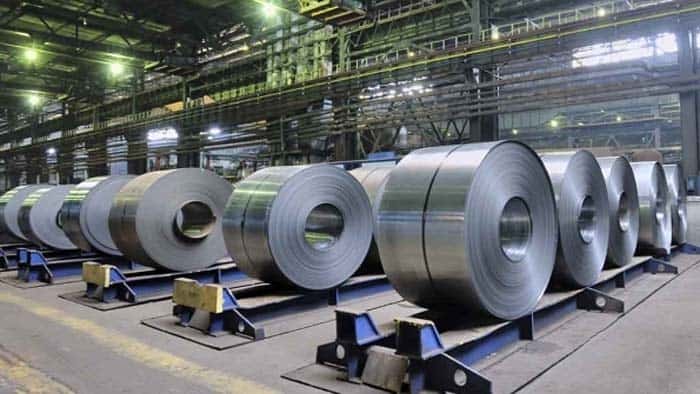New Delhi: Upbeat about the domestic steel industry witnessing a revival in 2017 after a gloomy spell, the steel ministry hopes that public sector units (PSUs) operating in the sector to fare better in 2018 and be on par with private counterparts.
“So, PSUs will be functioning if not on par but near par with the private sector in the calendar year of 2018,” steel secretary Aruna Sharma told PTI in an interview. Ecstatic about the national steel and public procurement policies that have taken off very well, the secretary said the sector has got a fillip and there is an optimism in the market.
The Cabinet, in May, approved National Steel Policy 2017 that envisages Rs10 trillion investment to take capacity to 300 million tonnes by 2030-31 to give a boost to the sector. The government in the same month also approved a public procurement policy to give preference to domestically manufactured goods with a view to promote Make in India initiative.
“We are happy with 2017 because the two things which the ministry was working on i.e. the steel policy and procurement preference policy, have taken off very very well and there are very positive signs about it. The sector has got the boost. The figure itself speaks up themselves that the sector has revived,” Sharma explained.
Stating that the companies operating in the steel sector were considering expanding their capacities, she said in the year ahead, the government expected some of the firms to be grounded. “All the players in the sector are thinking of expansion in their business and expansion in their capacities, which is also a positive sign. And in the coming year, we expect some of them to be grounded so that in the coming two-three years that capacity is added to our sector,” the secretary said.
Sharma also expressed hope that the steel production capacity will be much higher in the next fiscal from the present 126 million tonnes (mt). “So, let’s see how we are moving. But, we seem to be progressing quite well till the December figures,” the secretary said. During the year she said the strategy of the government to lay emphasis on the secondary sector has worked well.
“The secondary sector has taken off…And one positive sign of demonetisation, I will say, has been in the steel sector where the secondary market was known as the cash market they have switched over to…near cashless market,” Sharma stressed.
Stating that the government’s Make in India initiative has come out very strongly, she said that the government’s preferential procurement definitely has given a fillip and more and more orders are likely in the days ahead with the infrastructure development. “They are hopeful of getting more and more orders as we move in the infrastructure development from all ends whether it is rails or pipes or for bridge or for various kinds of steel or automobile, also because India is becoming a big hub of automobile manufacturers,” she explained.
The government, Sharma said, wishes to continue with the good work even next year, adding that she expects the PSUs in the steel sector to have much better results in 2018. “And we expect the PSUs in the calendar year 2018 to have much better results because their realisation on the investments has started this year. Next year, they should trigger off and they should sort of getting much better EBDITA and able to service their loan in a better way and really go- ahead,” he expressed exuded confidence.
Mesco Steel chairman and managing director Rita Singh is hopeful that in 2018, the steel requirement will go up with increased private and public spending on construction and infrastructure, enhanced domestic demand of steel/TMT bars and prices of steel taking an upswing.
“In 2017, the steel prices and regulatory environment around the sector has impacted the overall sentiment, which has not been very bullish…We see ourselves as a key player in ensuring that mid sized steel companies will continue to fuel the sector and contribute towards the Indian growth story,” she stressed.
Accelerating imports at predatory prices from steel surplus countries like China, Japan and Korea have been a major concern area for the domestic industry since September 2014. The government provided extensive support to the domestic steel industry by way of various trade remedial measures in recent times, such as minimum import prices (MIP), anti- dumping and safeguard measures and quality control.
However, the sector suffered a blow when Essar Steel and Electrosteel Steels came under insolvency proceedings. Clamping down on bad loans, Reserve Bank of India (RBI) has identified 12 firms for insolvency proceedings with each of them having over Rs5,000 crore of outstanding loans, accounting for 25% of total non performing assets (NPAs) of banks.
The banking sector is saddled with non-performing assets of over Rs8 trillion, of which Rs6 trillion is with public sector banks.
PTI

